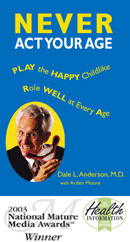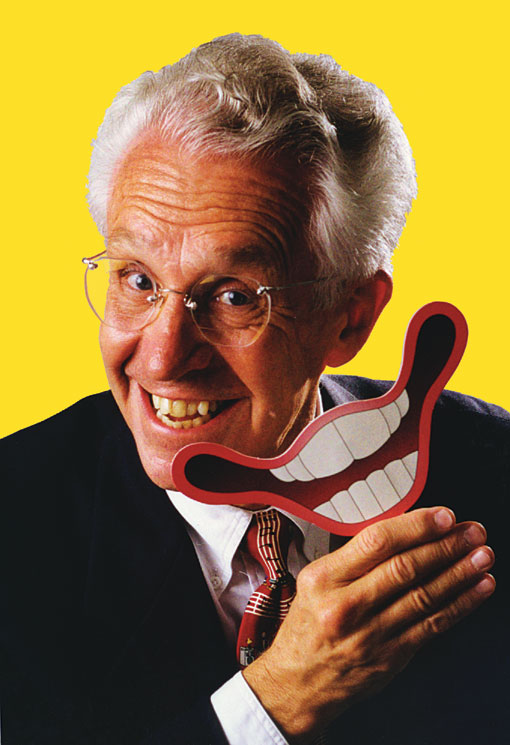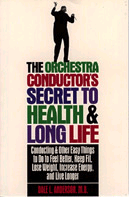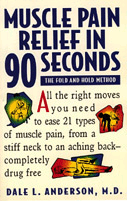Dr. Dale Anderson has been a friend for many years. I originally met him through the Minnesota chapter of the National Speakers Association and made a fast connection as our speaking topics and edutainment had a similar focus. (Child at Heart) Dr. Dale did some magic tricks with his humor as well. It was fun to see Dr. Dale and his wife Annie perform as Ole and Lena.
Dr. Dale was NSA Minnesota‘s chapter member of the year in 1990 and 2004. Dr. Dale won the Mark LeBlanc award for speaking in 2005 and then in 2011 Dr. Dale was inducted into the Minnesota Speakers Hall of Fame.
I was able to assist both Dr. Dale and Annie with their technology (website, Macintosh, etc.) through my company LuminFire. As they aged, it became increasingly challenging. Annie got alzheimers several years ago and passed away in Colorado with her family. Dr. Dale currently struggles with dementia and was recently placed in hospice in The Lakes Memory Care home in Stillwater, Minnesota. (Updated 4/5/2024)
This page is a tribute to Dr. Dale and includes some of the resources that used to live on his website.
 Dr. Dale Anderson, M.D. is a physician with over 35 years of experience, specializing in patient education and biomechanical medicine. He has practiced as a family doctor, a board certified Mayo Clinic trained general surgeon, and a board certified emergency physician. He was part of the complementary medicine department of Park Nicollet Medical Center — one of the country’s largest multi-specialty clinics. He was also an associate director of clinal research for two Fortune 500 companies. Dr. Anderson was a clinical assistant professor at the University of Minnesota Medical School and one of America’s leading health speakers, conducting seminars throughout the world.
Dr. Dale Anderson, M.D. is a physician with over 35 years of experience, specializing in patient education and biomechanical medicine. He has practiced as a family doctor, a board certified Mayo Clinic trained general surgeon, and a board certified emergency physician. He was part of the complementary medicine department of Park Nicollet Medical Center — one of the country’s largest multi-specialty clinics. He was also an associate director of clinal research for two Fortune 500 companies. Dr. Anderson was a clinical assistant professor at the University of Minnesota Medical School and one of America’s leading health speakers, conducting seminars throughout the world.
Dr. Dale shares humorous, fun, and creative method acting techniques in programs that dramatically enhances health and wealth by generating the chemistry of success. Dr. Dale is the author of several helpful books. His message has helped many companies and individuals.
Books and Articles
Dr. Dale Anderson, M.D. is the author of several books. Whether you are looking for a way to feel younger, relieve muscle pain, or a new and unique way of exercising, he has an answer.
Never Act Your Age
Play the Happy Childlike Role Well at Every Age
 Never Act Your Age prescribes how laughter and method acting turns on your body’s upbeat chemistry – those ‘drugs’ dispensed from your inner pharmacy that make you happy, healthy and feeling years younger. It’s time to put on a happy face for the sheer Health Of It. Step into the spotlight and into the starring role of your life. (2002) PDF Book
Never Act Your Age prescribes how laughter and method acting turns on your body’s upbeat chemistry – those ‘drugs’ dispensed from your inner pharmacy that make you happy, healthy and feeling years younger. It’s time to put on a happy face for the sheer Health Of It. Step into the spotlight and into the starring role of your life. (2002) PDF Book
The Orchestra Conductor’s Secret to Health and Long Life
Conducting and Other Easy Things to do to Feel Better, Keep Fit, Lose Weight, Increase Energy and Live Longer
A study shows that orchestra conductors live 38% longer than the general population. The reason is simple – conducting is good cardiovascular exercise. In this book, Dr. Dale Anderson has adapted the conducting motion into a fun and easy upper-body fitness program. (1997) PDF Book
Related: J’arm (Jog with the arms) for the Health of It – PDF Book
Act Now!
Successful Acting Techniques You Can Use Everyday to Dramatically Improve Health, Wealth, and Relationships
“Act as if…” is a common nugget of advice for those who want to change. If you act like someone who is…(fill in the blank) you have a greater chance of success.It really works. Just don’t tell anyone you were just “acting.” (1995) PDF Book
Muscle Pain Relief in 90 Seconds: The Fold and Hold Method
You’re now only 90 seconds away from getting rid of many of your muscle pains, completely drug free! If you suffer from back pain, tennis or golfer’s elbow, head or neck pain, wrist pain, shin splints, carpal tunnel syndrome, or many other common muscle aches, Dr. Dale Anderson’s innovative “Fold and Hold” technique can help! “Fold and Hold” combines simple, safe, biomechanical self-treatment with the natural healing powers of the human body. The result is muscle pain relief in 90 seconds.
TREAT YOURSELF WELL! Celebrate Mother Nature’s Manipulation Wisdom.
FOLD and HOLD—A technique that is used to treat common muscular problems often attributed to every-day injuries. Learn a few simple, safe, comfortable “right moves” to manage “nagging” muscular aches and pains like plantar fasiitis, Achilles’ tendonitis, carpal tunnel, tennis elbow and hip, back and neck pains. It makes $ense and $aves health care dollars. You can “bank on it”! PDF Handout
This session also, identifies HOLISTIC NUTRISHION and THEATER skills that INable the mind and body to MOVE toward painFREE, ageLESS energy, balance and mobility. GOALS and Benefits: Discover, master, perfect and then SHARE with others how to:
- Skillfully administer simple manipulation skills that erase many muscular aches and pains.
- Inexpensively teach self-treatment
- Comfortably position for pain relief
- Save treatment time
- Give extended relief
- Eliminate drugs, supplements, special instruments or flashing, vibrating machines–and
- Reduce the FEAR of pain because simple “right moves” are easy to understand and SHARE
All the right moves you need to ease 21 types of muscle pain, from a stiff neck to an aching back- completely drug free. This revolutionary method is a much for everyone with muscle twinges and aches. The Fold and Hold Method combines simple, safe, biomechanical self-treatment with the natural healing powers of the human body. You’re only 90 seconds away from getting rid of many of your muscle pains – Drug Free! (1994) PDF Book
The Liquidation Diet
LIQUIDATE Those Unwanted Pounds And FATTEN the WALLET! Take STOCK of your PORTLY PORTFOLIO. SPILL IT Don’t Swill IT! The basic idea of the “Liquidation Diet” is… don’t drink your calories and it will help you lose weight. Articles PDF
Presentations
There were several programs that Dr. Dale offered…
Act Happy WELLderly Program
 Individuals, Businesses, and Groups learned how to ACT HAPPY and accentuate positive relationships, team building and eliminate stress! The right prescription for everyone! Learn more about the four, very successful, Act Happy programs! Dr. Dale Anderson will bring the audience to life and show them first hand the power of laughter. In order to be happy, you must Act Happy!
Individuals, Businesses, and Groups learned how to ACT HAPPY and accentuate positive relationships, team building and eliminate stress! The right prescription for everyone! Learn more about the four, very successful, Act Happy programs! Dr. Dale Anderson will bring the audience to life and show them first hand the power of laughter. In order to be happy, you must Act Happy!
Act Happy! Live it up! Laugh for the Health of It! Be an Ageless WELLderly Star!
This “one man medicine show” prescribes and dispenses upbeat theater methods that turn on the “chemistry“ of childlike success. Knock the EL out of _derly and become WELLderly!
Doctors say “happy people are healthier.” Happiness is an infectious state that has a beneficial impact on health. You are born equipped with an inner cellular pharmacy that can medicate you to be more joyful and ageless. Self-Medicate. Turn it on. Other Misc Articles PDF
Enjoying good health isn’t just about nutrition, exercise, and stress. It’s also important to act on a happy WELLderly role. You set the stage by rehearsal and practice. That means never acting your age, and taking a child-like, joy-full and age-less approach to life.
Health Care – Laugh for the Health of It
Ho-Ho-Ho Holistic Medicine. Act Happy. Live it up.You are a Health Care STAR in the drama of life. Every day you are on stage with patients expecting you to perform your very best even if you don’t feel like it. Playing that STAR role, requires great “acting” skills.
You can act on it!
Method Actors have developed ways to trigger the Chemistry needed for a stage role. They realize that they cannot directly control their emotions, but they know they can literally set the stage for positive emotions through factors that can be controlled.
You can do the same in your work and in your life. You can be good medicine for yourself and for others.
You become what you do-more healthy and successful by consciously acting the happy, healthy traits you desire. This leads to a dramatic change in life. Everyone is a Health Care Provider for themselves and others. Your chemistry is contagious. Spread the Healthy HAPPYdemic.
Create the “Chemistry” of Peak Performance
The art of the theater explains how you can create and experience theater methods to perform a happy, successful part well in/on/at every stage of life.
Discover theater skills to direct, stage, script, costume and act on the “chemistry” of the me I want to be. Make yourself a star and expect dramatic benefits in business, education and life!
Science confirms, “Grandma was right.” When you put on a happy, fun act, you perform better. You become a role model. You are less stressed. More childlike. More productive. More energetic. More creative. You feel better. And when you feel better, you are Healthier!
Spiritual Program: Make a joyful noise unto the Lord. Act Happy. Live it up. Laugh for the health of it.
This “show” is about why happiness and humor are important parts of the spiritual character. Participants will discover how to treat themselves, their families and their associates “Well,” and INjoy dramatic results!
In this One Man Medicine Show, the Performing Arts are used to encourage an audience to discover the Method of staging a happy, fun, and Spiritual role everyday. Create perfect techniques to Act On the Divine Chemistry that produces greater health, wealth and happiness.
Each audience member will experience theater skills that dramatically set the stage to get the spiritual act together well. Clearly, when individuals get into the “chemistry” of a spiritual role, they perform better, they are more productive, and are more enthusiastic. They act, feel, and are good.
Attendees will experience how the Joyful Act unlocks an inner, cellular pharmacy and dispense a self-medicating Divine Prescription that “sets the stage” for a dramatic INhancement of health and happiness.
Past Clients
Some of the nation’s top organizations have invited Dr. Anderson to impart his happy, healthy wisdom to their audience members. He never fails to get his audience rolling with laughter. He teaches people how to Act Happy which will accentuate positive relationships, team building and eliminate stress. Let happiness change your organization for the better.
APPLAUSE… APPLAUSE… fun, warm, energetic, enthusiastic, spirited, captivating, entertaining, up-lifting, creative, engaging, enlightening, contagious, refreshing, talented, a joy to work with.
Overwhelming, positive, excellent, a perfect 10, conference highlight, just what the doctor ordered, have him back, he’s a stitch, good stuff, a real high, just what I needed, I’m better–Hallelujah! Will he be my doctor? Get me an appointment!







